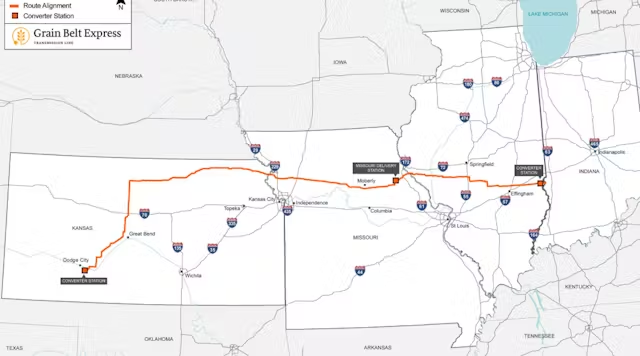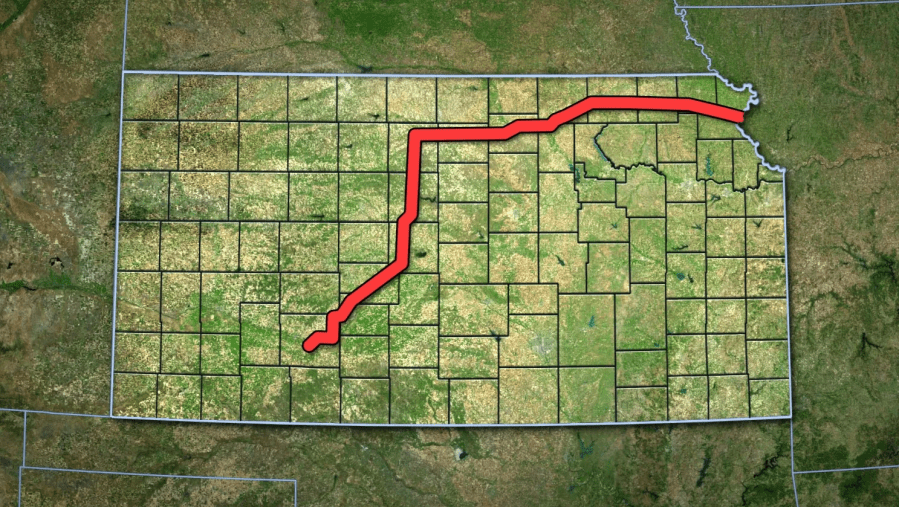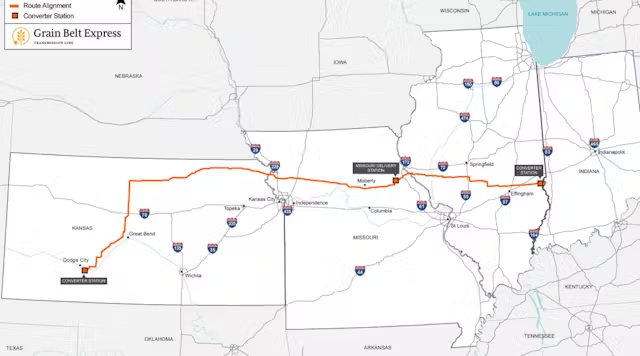Midwest-Plains was one of ten energy transmission corridors (also referred to as NIETCs) designated by the Department of Energy on May 8, 2024. Subsequently, the Farm Bureaus of Kansas, Illinois, Iowa, Missouri, Nebraska, Oklahoma, and South Dakota sent a joint letter to DOE’s Grid Deployment Office, which issues NIETC designations. Their conclusion was that an applicant-driven, route-specific method of designating National Interest Electric Transmission Corridors violates Section 216(a) of the Federal Power Act (FPA). The letter stated that the FPA allows the DOE to receive input regarding which geographic regions should receive NIETC designations “but not specific projects” needed to alleviate grid congestion. The letter also addresses the existing Grain Belt Express Route.
The FPA allows the DOE to identify regions that might experience grid congestion, but it doesn’t allow the department to propose solutions. As Section 216(a) specifies, the DOE must allow state and regional planning to identify solutions to congestion. Often, long-range transmission lines are not needed. A national, applicant-driven process for designating corridors overrides regional planning and inappropriately favors private companies, such as Invenergy.
A perfect example of this is the Midcontinent Independent System Operator, or MISO, which already has a long-range transmission portfolio (LRTP) that alleviates grid congestion and precludes the need for Invenergy projects. This is why GBE has been excluded from MISO’s grid. Grain Belt Express was conceived outside of MISO’s normal planning process. In fact, MISO has already planned for connections to the PJM and SSP grids, which Invenergy seeks to unnecessarily duplicate.

Furthermore, the DOE designated a five-mile width for Midwest-Plains, expanding the 150-foot right-of-way for GBE. Drawing a corridor around Invenergy’s existing project shows a clear and unethical preference for a private developer. The FPA directly prohibits the DOE from soliciting or showing preference for projects under private development by designating additional corridors around them.
While Invenergy has petitioned the DOE to narrow Midwest-Plains to one-half mile, the Farm Bureaus point out that the new corridor allows the company to build numerous parallel lines. While Invenergy denies any intention to do so, one must question the company’s eagerness to petition for rights to the line, including requests for fast-track siting and permitting, long before the corridor was announced on May 8, 2024. Section 216(a) of the FPA has been violated by the DOE seizing siting authority from state agencies.
Designation of a NIETC by the DOE enables the Federal Energy Regulatory Commission to use its backstop authority, meaning FERC can override any regional protections that prevent eminent domain abuse. In violating Section 216(a), the DOE has engaged in federal overreach that eliminates a state’s ability to evaluate and solve its energy needs. With state controls in place, existing laws granting citizens additional protection against the unfair invoking of eminent domain would remain intact. With the DOE using FERC backstop authority, the federal government makes virtually all decisions regarding power transmission and the use of eminent domain, and it’s a violation of the law that the Kansas Corporation Commission (KCC) and Legislators have ignored.

What is especially disingenuous is that most studies used by the DOE to identify grid congestion were conducted by private companies and contracted by companies like Invenergy that stand to reap hefty corporate profits from the DOE’s preference for merchant transmission lines.
Numerous studies have demonstrated that utility rates are higher for end-line merchant customers, not cheaper. Midwest-Plains should have no right to exist, especially as it overlays existing private development; but who is to provide federal oversight when the federal government is breaking its own laws?

Tammy Hammond – stopeminentdomainabuse.org
Tammy Hammond is a small business owner, author and property rights activist in Great Bend, Kansas.




